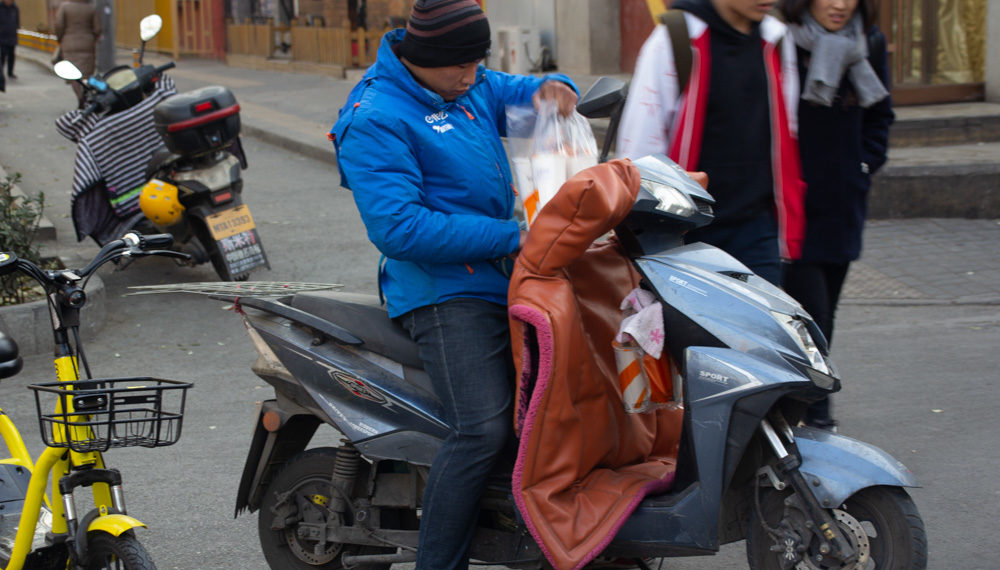Donning a blue jacket, black trousers and a blue helmet, with her brown eyes glued to a 5.5-inch mobile screen on a busy Weigongcun road, Zhang Haisu is waiting for her turn to deliver food orders.
New to Beijing city with 21 million souls working hard to earn a decent living, 39-year-old Zhang, a native of Linfen city in the southwest of Shanxi province, came to the Chinese capital with a dream of giving her children a better life.

On one hot morning last May, she and her husband left their home, farm, and two children behind to work as food delivery workers in Beijing. The decision was hard, but they had to make it for their children’s education and for a better future.
From growing rice and corn in fields, Zhang started working for Ele.me, an online food delivery service. But within the first few months, she started realizing the harsh realities of this work.
Every day, she has to deliver food to 25-30 customers across 431 square kilometers (106,502 acres) area covering Beijing’s Haidian district. But fulfilling every delivery is a challenge when every inch of the road is covered with cars and people.
“We have to deliver food at such a pace as if it is war. When you have 6 to 8 orders at a single time, you often get confused. Sometimes my brain goes numb when I have too many orders to deliver at a single time,” Zhang said while clasping her hands with fingerless gloves.
“This is not an easy job and often stressful and considering the expenses of living in Beijing, I don’t save much,” she added.
As the Chinese food delivery industry continues to expand tremendously with growth in the user base, companies are competing hard to deliver food at the shortest possible time to retain loyal customers.

Even though numbers specifying the frequency of such incidents haven’t been compiled for each province, the data arranged by the Department of Transportation in Nanjing city sheds light on the broader picture of the precarious job.
Cui Haining, 33, left his peanut oil processing factory in Hebei province almost two years ago to cash in the highly incentivized food delivery industry in Beijing. But two years after working for a delivery service, he is looking for an escape.
“When I started working, the wages were very good but nowadays the wages aren’t that good,” Cui said. “I used to make more than 10,000 a month, but now I hardly earn 8,000, out of which a major part is spent on the daily expenses,” he added.

Cui believes that the job is becoming more and more stressful with each passing day as the use of online food delivery apps continues to grow.
“There is no time left for me to spend with my family. I start my day early and finish late. I have become more like a machine,” he said and added, “delivery is becoming more and more difficult with the chaotic roads which are always filled with traffic.”
The only thing that unites Zhang and Cui is their wish to return back to their respective provinces rather than working stressfully and risking their lives while delivering food in Beijing.
Cui wants to open a small restaurant and sell dishes of traditional Chinese cuisines, while Zhang anticipates her return to farming after saving enough to pay for the education of her children.
“I prefer growing rice and corn more than doing this stressful job,” Zhang added, as she ran to collect a food order from a nearby restaurant.

























